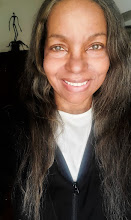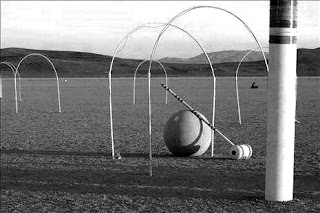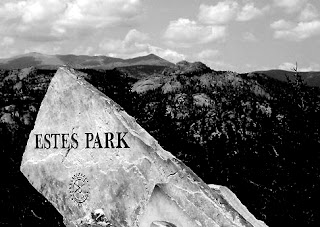The Dave Brubeck Anthology - Music Book |
This is how my mother made my life seem like a luxury, instead of the drudgery most people simply accepted.
Outdoor Entertainment at Littie's was necessary because there was no indoor air conditioning. These were my family's evenings out and sometimes we had overnight company, traveling relatives or friends passing through town. At that time, there were no restaurant or hotel accommodations for black people, except ill-equipped, insect-infested flop-house rooms above nightclubs. My mother would never expose guests to rooms where sheets had never been laundered.or restaurants with rear Jim Crow entrances or walk-up windows to order food to be eaten while standing on the street. That was just not acceptable to her.
To complete evenings out, my mother brought out music to play on a record changer she had bought at a yard sale. She connected her new electronic music device to a power source in the kitchen, set the box on a chair just inside the back door and put on her favorite music--Dave Brubeck--while she decorated the backyard for supper.
"You can make your life better with a little effort," she said. "I already have the world out there screaming at me what I can and cannot do for a living; where I can and cannot sit in a restaurant; where I can and cannot live! Why would I want to come home from the job they do let me have and listen to a guy whining how bad life is to the sound of an out-of-tune guitar," she would say. I guess that music was too sad, reminding her of the Jim Crow realities under which we lived, at that time, and making her feel worse than the world already made her feel.
"I do not need someone crying loud and yelling about a broken heart or a life gone wrong," my mother would say about Blues and Country Music, she wrote songs herself that were very much country. "I can look up the street and find real examples of failed love lives! I want to hear music that gives me hope and lightens my spirit." Dave Brubeck's song, Take Five, from his album, Time Out, really lifted my mother's spirits after she went right out and bought it as soon as the studio released the music in 1959.
 |
| Time Out |
| Essential Dave Brubeck |
My mother's motto was, take five-- take time to enjoy yourself. Taking five always included the Dave Brubeck Quartet or some other of her favorite jazz artists who played "sweet and soft."
Listening to Brubeck's music allowed my mother and me to exchange feelings of sadness with feelings of joy.
Dave Brubeck Quartet Take Five
Paul Desmond, Saxophone
Just like my mother tried to make life better by creating her own fine restaurant in the backyard and playing her favorite music, all of America was yearning for hope during the 1950s and 1960s. Life under Jim Crow laws could make one feel pretty oppressed and I imagine the oppressor's burden was getting heavy, too. Although we all saw the changes over the horizon, the changes were yet to be fully realized.
| All Deliberate Speed: Reflections on the First Half-Century of Brown v. Board of Education |
When the Supreme Court decided Brown v the Board of Education in 1954, my mother thought the schools would be integrated and, finally, I would be issued new school books.
When this was not the case, we all waited, patiently and some impatiently. And nothing changed. Long after the Court ordered school desegregation with aIl deliberate speed, I continued my education in a segregated school system using hand-me-down books from the white school until I graduated from high school ten years later. And ten years later and even today, we are all still the Offspring of Jim Crow. When their books were replaced, the black schools got them, marked up, pages missing and bindings loose. Then some of our teachers used books to play favorites, giving their pets the best of them.
|
I could not use tattered books as an excuse. My mother never accepted that. "You have books," she said. "That's more than your ancestors had on the plantation! Now, go to your room and do your homework."
My mother expected me to graduate from college one day and those books were all my school had to prepare me.
There was never any use arguing with my mother. She had all the answers, it seemed. So, I dragged those old beat-up books home from school every day and studied under her watchful eye while listening to the music of Dave Brubeck or Kenny Burrell or some other favorite jazz or classical artist of hers in the background.
My mother's mother, Bigmama who lived with us, had a brother, a school teacher in Houston. His wife was a traveling book and music seller, on the road sometimes seven days a week with a statewide route that included our town. Our great aunt stopped often at our house for a meal when she was in town and sometimes slept overnight
Due to the lack of restaurants and hotels available to this black traveling sales executive, we became part of her accommodations network, providing evenings outdoors with delicious food and conversation about books, music, politics and current events; and listening to the latest jazz and classical music albums that she also sold from the back of her car to supplement her income. This was possible because, like most small towns in the 1950s, ours had The Record Shop downtown, a dark, dusty, dingy little hole in the wall that did not carry jazz or classical music and did not sell sheet music, which I needed for my piano lessons.
My mother also ordered my sheet music and her jazz and classical music recordings from our great aunt. She also bought lots of other product from our great aunt on installment plans, such as a set of reference books, because my school's encyclopedia were outdated and the public library was segregated. My mother bought subscriptions to national magazines, newspapers, journals and other periodicals like National Geographic.
My father always wanted to know where my mother got all the money to make those purchases. She replied, "I manage."
Our aunt made quite a good living for a number of years until record clubs and book-of-the-month deals in the backs of magazine ruined her business. It was just as well, she said. It had been a hard job for a woman. In fact, she was the only woman I knew who was a traveling salesman. Although she had a college education, professional jobs outside of the classroom for black women in her generation were scarce. When she and our uncle retired, I spent weekends with them in Houston. Over the years, the childless couple had amassed a small fortune and lived very well in a black upscale Houston neighborhood.
Books, newspapers, photo essays and television helped change U.S. race relations.
| Rosa Parks by Rosa Parks & James Haskins |
Rosa Parks had started the year-long Montgomery Bus Boycott and Dr. Martin Luther King soared to national prominence one year after Brown v the Board of Education failed to change the Jim Crow American educational system. And, again, I have to admit, there was little immediate change.
The Supreme Court said one thing and the American people said and did another. Some black Americans waited for others like Martin Luther King to test the new laws regarding U.S. race relations that had replaced Jim Crow and other black families sued districts, cities and states in efforts to receive equal access to better schools. People of all races were afraid of what was about to happen to their ways of life.
School districts hired attorneys to guide them through the postponement game to avoid court rulings on a slew of Landmark Cases Affecting Jim Crow Laws in American Education. In the meanwhile, things stayed the same. For another decade, there were people in the United States of America who were not allowed to vote and there were still colored and white only signs at the movies, in waiting rooms and other places around the nation.
| Their Last Time Out BY DAVE BRUBECK |
In her planning for my education, the music of Dave Brubeck and other similar music figured in prominently. She believed this music along with classical selections would improve my mind by calming my thoughts while I studied my lessons in those hand-me-down books. And it worked. I became one of the first black women to graduate from Texas A&M University and I made the Dean's List several semesters while listening to the music that became the ambiance of my life.
©
Sunny Nash is an author, producer, photographer and leading writer on U.S. race relations. She writes books, blogs, articles and reviews, and produces media and images on U.S. history and contemporary American topics, ranging from Jim Crow laws to social media networking. Sunny Nash is the author of Bigmama Didn't Shop At Woolworth's (Texas A&M University Press), about life with her part-Comanche grandmother during the Civil Rights Movement.
|
Hard Cover
Amazon Kindle
|
 |
| Sunny Nash |
Sunny Nash’s book is recognized by the Association of American University Presses as essential for understanding U.S. race relations. Nash's book is also listed in the Bibliographic Guide for black studies at the Schomburg Center for Research in Black Culture in New York; and recommended for Native American collections by the Miami-Dade Public Library System in Florida. Nash uses her book to write articles and blogs on race relations in America through topics relating to her life--from music, film, early radio and television, entertainment, social media, Internet technology, publishing, journalism, sports, education, employment, the military, fashion, performing arts, literature, women's issues, adolescence and childhood, equal rights, social and political movements--past and present—to today's post-racism.
© 2014 Sunny Nash. All Rights Reserved Worldwide.
www.sunnynash.blogspot.com
www.sunnynash.blogspot.com
~Thank You~








